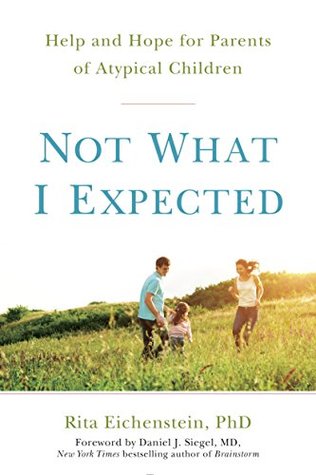More on this book
Kindle Notes & Highlights
Read between
July 29, 2019 - January 24, 2020
These phases are more fluid, with parents often moving in and out of the various feeling states several times over the course of a month, a week, or sometimes even a day.
Is my child’s problem something I caused or could have prevented—or something my child inherited from me? Will I be up to the stresses and challenges of raising an atypical child? Will we be able to afford the best treatment for our child? Am I ignoring our other child/children by focusing on our atypical child? Will the relationship with my spouse suffer because we have different ideas about how to deal with our child’s problem? Often contributing to a parent’s depression is a profound sense of isolation. You may be the only one of your friends with an atypical child and thus have no one with
...more
“I feel so alone, so isolated.” “How can I tell the neighbors that our child won’t be going to the public school with their kids?” “I don’t feel comfortable discussing our child’s problem with my own parents.”
“transgression.”4 Understanding what happens in the brain of a vulnerable and hurting parent is essential if you are to recognize it in yourself and move into a more healing frame of mind.
A diagnosis or a condition marks the start of a process, not an end point in the game of life.
Parents who don’t understand or acknowledge their own emotional journey end up having a much harder time,
whatever you think is going to happen with your child, it’s probably not going to be what you envision when you are depressed, overwhelmed, or anxious. That
difficulties in social interactions. Those
Have faith in yourself, have faith in your child, and keep an open heart and mind. You cannot know what your child’s future will hold.
What—or rather, who—came to mind when you imagined what your child would be like? What did you imagine he or she would look like? What influences contributed to your image of the child you would one day parent? What did you think his or her personality would reflect? What attributes, strengths, and proclivities did you envision your child would have? How did you imagine your child would be similar or different from you? From your spouse or partner? How did you assume you would feel toward your ideal child? What feelings would he or she bring out in you?
let go of the idealized image of who your child was supposed to be. Shedding your conscious or unconscious expectations will free you to be more open to the variety in human behavior, recognizing that none of us is ideal, that no human being is without human imperfections. It is not the imperfections that create difficulties, it is our expectations.
But parents don’t prime themselves. How are you going to feel when your child freaks out in front of all your friends? How are you going to handle your embarrassment?
What was the situation? How did you react in the moment? How did that work for you? What can you learn from that? What do you need to do next time in order to avoid a repetition of this event?
May you be well. May you be cared for. May you be joyful.
The truth about raising any child is that the experience is filled with unexpected twists and turns, both confounding and delightful.
your partner’s refusal to acknowledge that something is going on with your child.
Worriers are people who are unable to find a balance between their emotions and their reasoning (what the experts call “healthy emotional homeostasis”).
identify atypical conditions and behaviors so that children can receive the attention they need, I also want to be the child’s advocate along with his or her parents.


